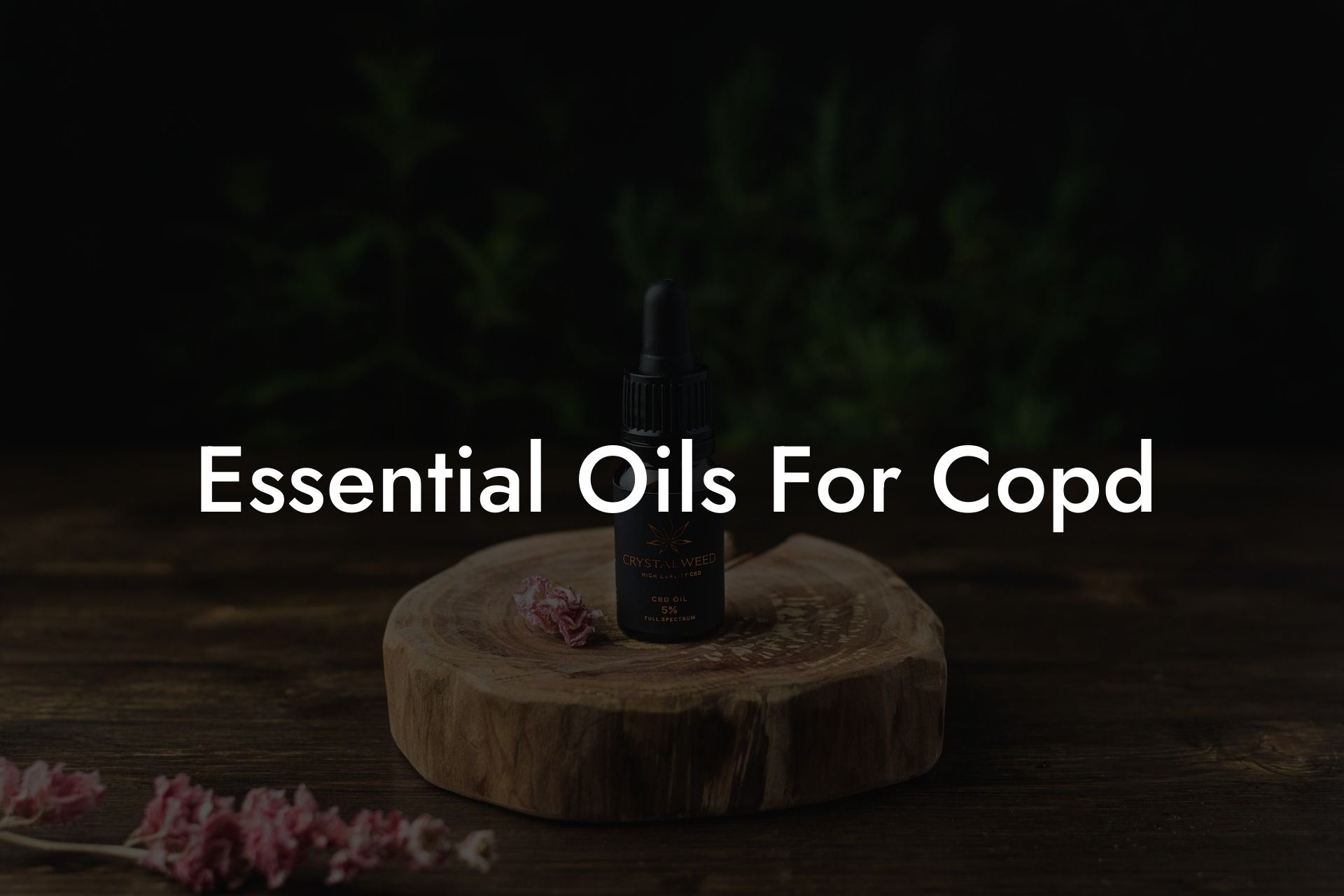COPD, or Chronic Obstructive Pulmonary Disease, is a progressive disease that affects millions of people worldwide. With symptoms like shortness of breath, cough, and fatigue, living with COPD can be challenging. However, essential oils may offer a complementary therapy to help manage the symptoms and improve overall wellbeing. In this article, we will explore how essential oils can help relieve COPD symptoms, their potential benefits, and the most effective ways to use them. So, let’s dive in!
Table of Contents
What is COPD, and how can essential oils help?
COPD refers to a group of chronic lung conditions, including emphysema and chronic bronchitis. These conditions cause inflammation and a narrowing of the airways, making it increasingly difficult to breathe. Although there is no cure for COPD, essential oils can potentially offer relief by:
– Reducing inflammation
– Providing respiratory support
– Lifting mood and easing anxiety
– Supporting sleep and relaxation
The best essential oils for COPD
While many essential oils exhibit therapeutic properties, some are particularly beneficial for people living with COPD. Here are a few most recommended essential oils:
Eucalyptus oil
Recognized for its decongestant and anti-inflammatory effects, eucalyptus oil can help clear mucus from the airways and promote better breathing.
Ravensara oil
With antiviral, antibacterial, and expectorant properties, this oil can help fight respiratory infections and support a healthy immune system.
Lavender oil
As a well-known relaxant, lavender oil may reduce stress, anxiety and promote better sleep – particularly useful for people with respiratory difficulties.
Peppermint oil
Its cooling effect and decongestant properties can provide relief from nasal congestion and help open airways.
How to use essential oils for COPD
There are several methods to incorporate essential oils for COPD relief safely and effectively. Always remember to dilute essential oils with a carrier oil (like almond or coconut oil) before applying them to your skin.
Inhalation
The most common method for breathing issues is direct inhalation. Add a few drops of your chosen oil to a diffuser, a bowl of hot water, or onto a cotton pad or handkerchief. Breathe deeply to inhale the soothing aromatic compounds.
Topical application
Apply the diluted essential oil mixture to the chest and upper back area, massaging gently to help relieve congestion and support respiratory function.
Bathing
For a relaxing and therapeutic bath, add a few drops of essential oils to warm bathwater or mix them with Epsom salts, and soak your body for at least 15 minutes.
Essential Oils For Copd Example:
Susan, a 50-year-old woman diagnosed with COPD, experienced shortness of breath, a persistent cough, and was often anxious about her condition. After researching, she decides to incorporate essential oils into her COPD management routine. She begins with a eucalyptus and lavender blend, diffusing the mixture in her bedroom to support sleep and enable better breathing. Additionally, she massages the same blend diluted in almond oil on her chest and upper back each morning to ease her respiratory symptoms throughout the day. Over several weeks, Susan notices an improvement in her overall wellbeing and a decrease in her anxiety levels, thanks to the calming effects of essential oils.
COPD symptoms can be challenging to live with, but essential oils may offer a complementary therapy option to help alleviate discomfort, reduce stress, and support overall wellbeing. If you enjoyed this article, please share it with others who may benefit from these natural remedies. Explore more essential oil guides on Oshu Oils and discover our range of Artisan Essential Earth Oils, expertly blended to support your health and wellness journey. Start embracing the power of aromacology and enhance your quality of life with Oshu Oils today.





















